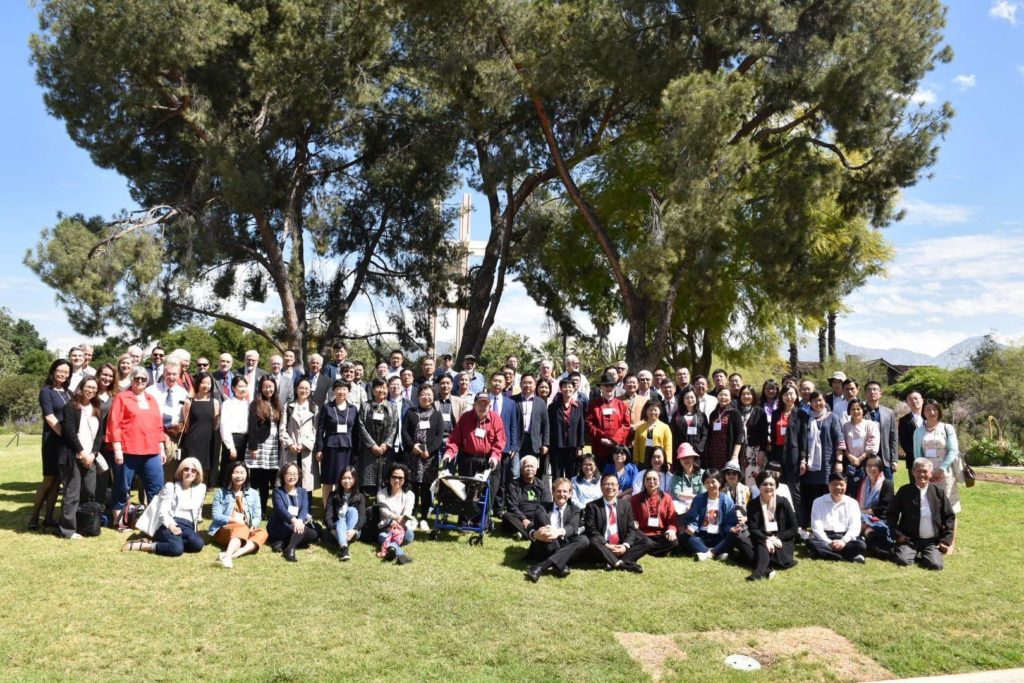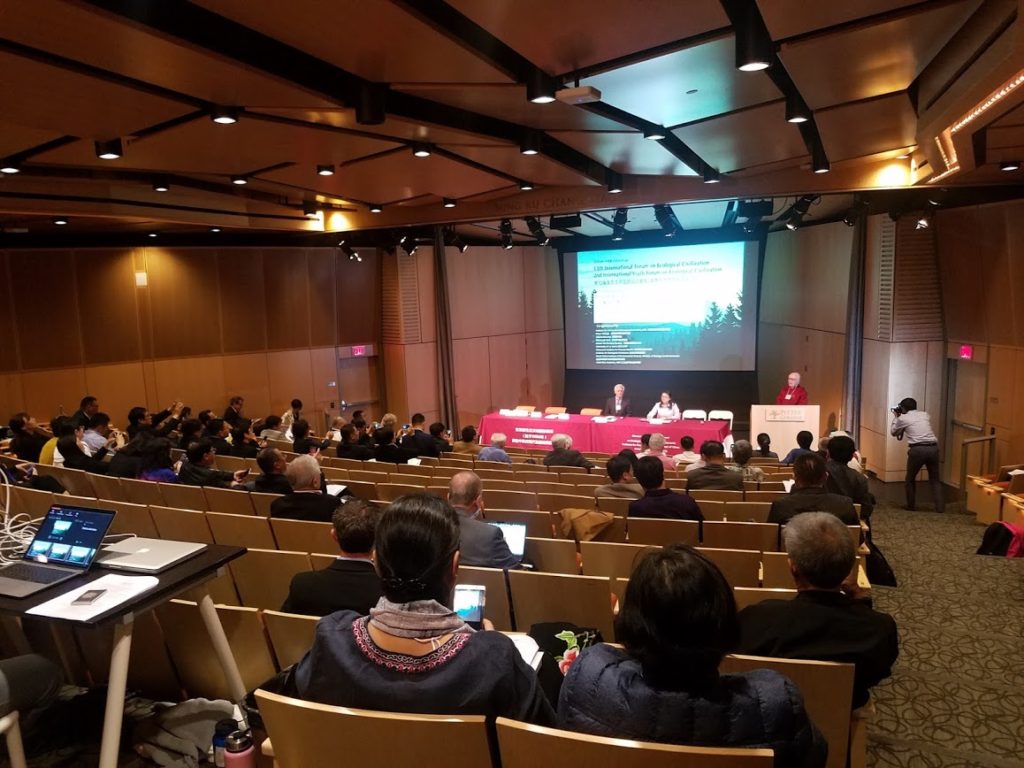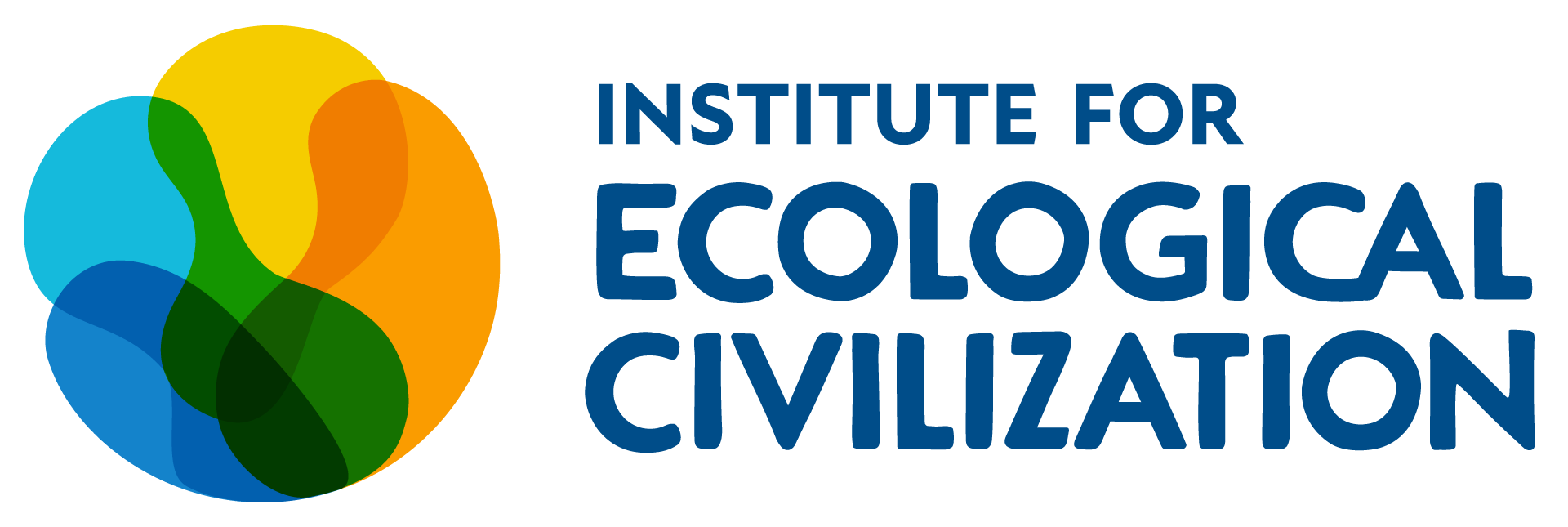International Forum Explores Holistic Human Development for Ecological Civilization

By Wm. Andrew Schwartz
Over the course of a two-day event at Pitzer College, more than 160 experts from China, the United States, and other countries gathered for an international exchange on latest developments in ecological civilization studies. The 13th International Forum on Ecological Civilization, held in conjunction with the 2nd International Youth Forum on Ecological Civilization, took place April 19-20 in Claremont, CA. In previous years, this forum included exploration of many facets of an emerging ecological civilization (from economics, agriculture, and education, to science, philosophy, governance, and more). This year the theme was Ecological Civilization and Holistic Human Development—reflecting not only on the external transformation of our unsustainable systems and structures, but also the internal transformation needed for us to become the kind of people that will create (and live into the vision of) an ecological civilization.
As a collaborative forum, this international event was hosted by the Institute for Postmodern Development of China and co-sponsored by organizations from around the world, including: the Institute for Ecological Civilization, Pitzer College, South China Institute of Environmental Science Ministry of Ecology and Environment, Jiaodao Xiaodao, Cobb Eco-Academy SEN, EnviroLab Asia, Center for Process Studies, University of La Verne, and the Claremont Institute for Process Studies.

In recent years, the language of “sustainable development” has become extremely popular. This is especially true in relation to the United Nations “Sustainable Development Goals” affiliated with Agenda 2030. The term “development” is used to indicate progress toward improved quality of life. That includes establishing a reliable infrastructure for energy, communication, transportation, etc.—those things thought to enhance livability for human communities. Yet, development most often goes hand-in-hand with the destruction of the very environment that we depend upon for our survival. Hence, the term “sustainable” is now commonly used to modify “development” as a way to describe a new type of progress that can last for the long-term.
Like sustainable development, human development is also a way to describe progress. In economic circles, it generally refers to improving lives of humans through economic growth. Holistic human development, therefore, can refer to a more integral and inclusive way of thinking about human improvement while considering our place in the interconnected web of life. While economies measure progress by quantity (numbers), holistic human development measures quality (of life and relationships).
By inviting exploration into holistic human development toward ecological civilization, the organizers of this 13th International Forum have reminded us that creating sustainable and equitable forms of human communities is not separate from the people that will comprise those communities. We were reminded that creating human communities capable of promoting the overall well-being of people and the planet is a holistic vision that includes more than simply physical well-being, more than short-term immediate well-being, and more than human well-being. We were reminded that the path toward ecological civilization is about more than green energy and organic farming—that the way forward is not built by sustainable development alone but must include a holistic human development.
The conference banquet included a special lecture by psychoanalyst Dr. Donna Orange, and the award ceremony for the 12th John Cobb Common Good Award, which was presented to Dr. JoeanOon Siew Kee—a leading environmentalist in Malaysia, and founder of Jiaodaoxiaodao, a global promoter of Eco Enzymes. Previous recipients of the John Cobb Common Good Award have included renowned leaders such as Sheri Liao (Xiaoyi), Mary Evelyn Tucker, C. Dean Freudenberger, Mark Anielski, Zongchao Liu, Wen Tiejun, and others.
